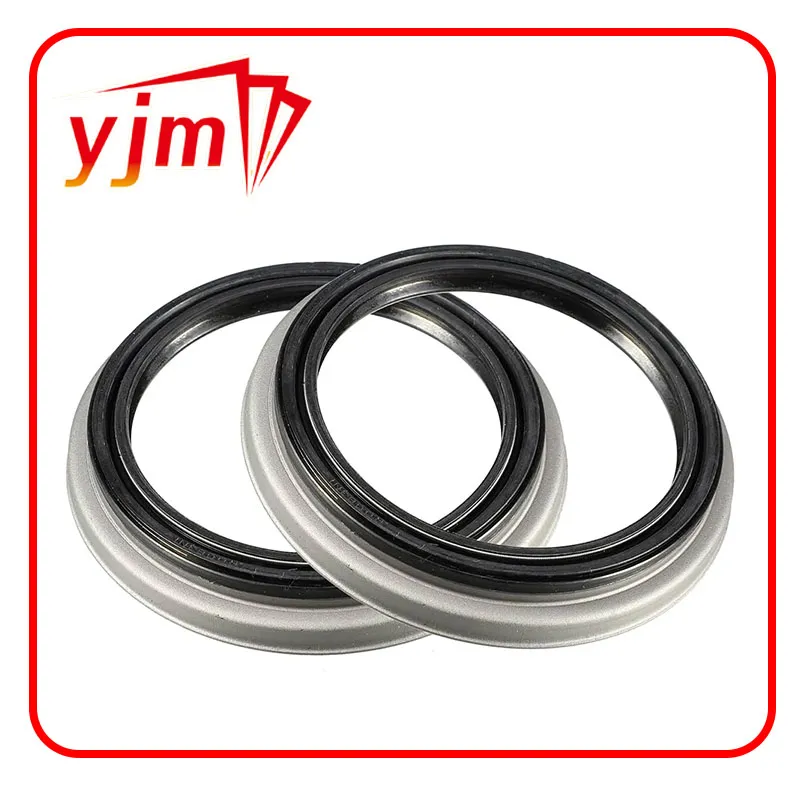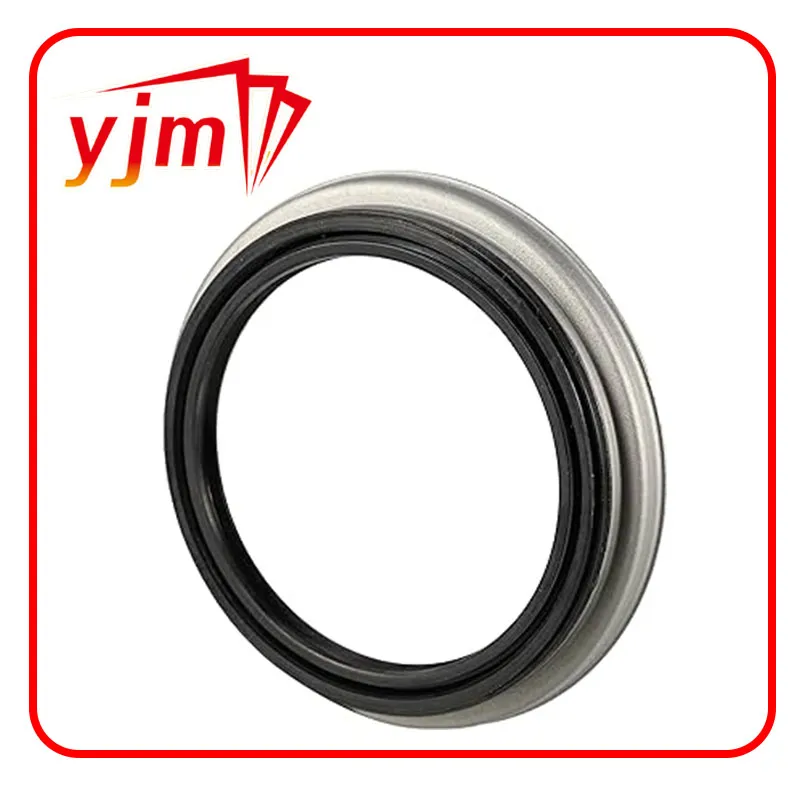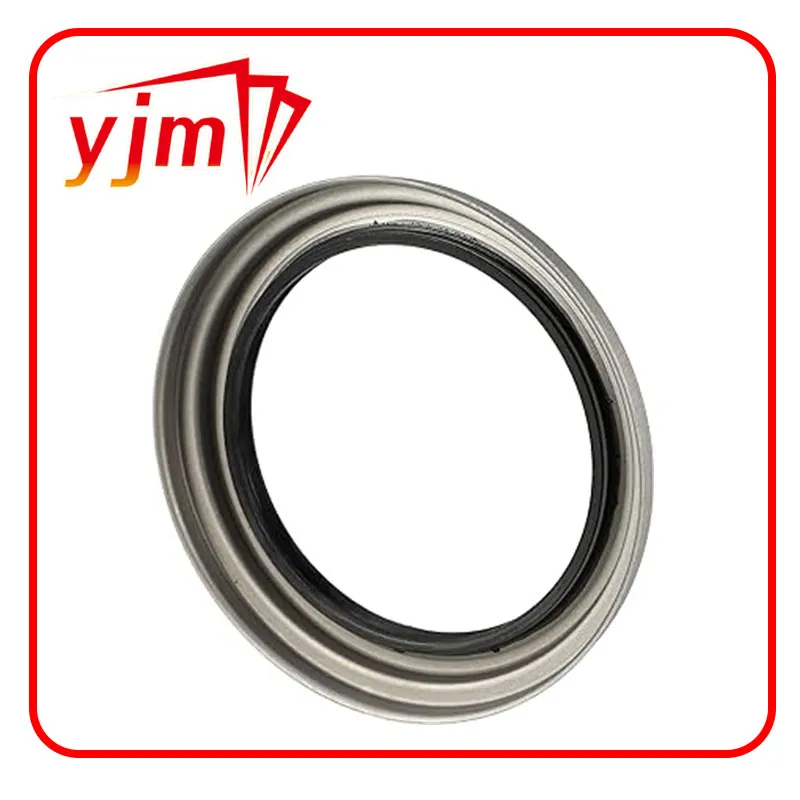Premium Automotive Oil Seals Suppliers | Durable & Precision
Understanding Automotive Oil Seals: A Critical Component for Engine Performance
In the intricate world of automotive engineering, the reliability and efficiency of every component are paramount. Among these, oil seals play an indispensable role in safeguarding powertrain integrity and preventing fluid leakage. As specialized automotive oil seals suppliers, we understand the critical demand for precision-engineered solutions that withstand extreme operating conditions.
This comprehensive guide delves into the technical nuances, market dynamics, and operational advantages offered by leading automotive oil seal manufacturers. We aim to provide B2B decision-makers, procurement managers, and engineering teams with the insights needed to select optimal sealing solutions for various applications, from light-duty passenger vehicles to heavy-duty commercial machinery.
Current Industry Trends and Market Dynamics for Automotive Oil Seals
The landscape for automotive oil seal technology is continually evolving, driven by stringent emission regulations, the push for enhanced fuel efficiency, and the advent of electric vehicles (EVs). Traditional internal combustion engine (ICE) vehicles still heavily rely on advanced oil seals for crankshafts, camshafts, and transmission systems, where seals must endure high temperatures, aggressive lubricants, and dynamic shaft movements.
Key trends influencing automotive oil seals suppliers include:
- Advanced Material Development: The shift towards higher performance polymers like PTFE, FKM, and HNBR allows for seals that offer superior chemical resistance, thermal stability, and reduced friction, extending service life and improving engine efficiency.
- Miniaturization and Lightweighting: As vehicle designs become more compact, there's an increasing demand for smaller, lighter seals that maintain robust sealing capabilities without compromising performance.
- Electrification Impact: While EVs reduce the need for traditional engine oil seals, they introduce new sealing challenges for electric motors, gearboxes, and battery cooling systems, requiring seals compatible with new fluids and higher rotational speeds.
- Smart Seals and IoT Integration: Future developments may include sensors integrated into seals to monitor wear, temperature, and pressure in real-time, enabling predictive maintenance and enhancing operational reliability.
- Sustainability and Recycling: Growing emphasis on eco-friendly manufacturing processes and the recyclability of seal materials is becoming a significant factor in supplier selection.
The global automotive oil seal market is projected to grow, with a significant compound annual growth rate (CAGR) attributed to both new vehicle production and the robust aftermarket for replacement parts.
The Advanced Manufacturing Process of Automotive Oil Seals
The production of high-performance automotive shaft seals is a meticulous process, demanding precision at every stage. Leading automotive oil seal manufacturers adhere to rigorous quality controls and utilize state-of-the-art technologies to ensure product integrity and performance. Here's a detailed overview:
Process Flow Diagram:
1. Material Selection
Careful selection of elastomers (NBR, FKM, HNBR, ACM) or PTFE based on application requirements (temperature, chemical resistance, shaft speed).
2. Component Preparation
Metal cases (carbon steel, stainless steel) are stamped or formed. Springs are coiled and heat-treated. Both undergo surface treatment for adhesion and corrosion resistance.
3. Vulcanization/Molding
Elastomers are precisely molded onto the metal case through compression or injection molding, creating the primary sealing lip. PTFE seals involve specialized forming and sintering processes.
4. Trimming & Finishing
Excess material (flash) is removed. Sealing lips are precision-trimmed to exact dimensions, often with automated optical inspection systems.
5. Spring Insertion
Garter springs are carefully inserted into the lip of the seal to provide consistent radial sealing force against the shaft.
6. Quality Control & Testing
Dimensional checks, leakage tests, material hardness, radial force measurements, and accelerated life tests are performed. Adherence to ISO 9001 and IATF 16949 is standard.
The use of advanced CNC machining ensures precise geometries for metal components, while robust casting and forging processes guarantee structural integrity. Final testing stages often include dynamic leak tests, friction torque analysis, and endurance testing to simulate real-world operating conditions.
Materials & Advantages:
- Nitrile Butadiene Rubber (NBR): Excellent resistance to petroleum-based oils and fuels, common in general engine applications. Service temperature range: -40°C to 100°C.
- Hydrogenated Nitrile Butadiene Rubber (HNBR): Enhanced thermal and chemical stability compared to NBR, ideal for higher temperature environments and aggressive additives. Service temperature range: -40°C to 150°C.
- Fluoroelastomer (FKM/Viton): Superior resistance to high temperatures, chemicals, and ozone. Crucial for modern engines with synthetic oils. Service temperature range: -20°C to 200°C.
- Polytetrafluoroethylene (PTFE): Extremely low friction, high chemical resistance, and wide temperature range. Often used in high-speed applications where minimal friction is critical. Service temperature range: -50°C to 250°C.
- Acrylic Rubber (ACM): Good heat and oxidation resistance, suitable for automatic transmission fluid and power steering fluid applications. Service temperature range: -30°C to 150°C.
These materials, combined with precision manufacturing, contribute to advantages such as energy saving through reduced friction, extended service life, and robust corrosion resistance against various fluids.

Technical Specifications: Engine Crankshaft Oil Seal 9031683001
As a prime example of high-quality automotive oil seal engineering, let's examine the specifications for the Engine Crankshaft Oil Seal 9031683001. This seal is engineered to meet the demanding requirements of modern internal combustion engines, providing reliable sealing under dynamic operating conditions.
Key Product Parameters:
The precise design of the sealing lip geometry, coupled with the appropriate material selection, is critical for minimizing friction, heat generation, and wear, thereby ensuring a prolonged service life. This particular seal is designed for high-performance applications, where maintaining optimal lubrication and preventing leakage are paramount.

Application Scenarios and Target Industries
The versatility of automotive oil seal technology extends across a broad spectrum of industries beyond just passenger vehicles. Suppliers cater to diverse sectors that require robust sealing solutions for rotating and reciprocating machinery.
Primary Application Areas:
- Automotive & Transportation: Crankshafts, camshafts, transmissions, axles, wheel hubs, power steering systems, and hydraulic pumps in cars, trucks, buses, and motorcycles.
- Off-Highway & Construction: Heavy equipment such as excavators, bulldozers, loaders, and agricultural machinery, where seals must resist dirt, mud, and extreme temperatures.
- Industrial Machinery: Gearboxes, motors, pumps, and compressors in manufacturing plants, requiring long-lasting seals for continuous operation.
- Marine & Aerospace: Specialized seals for propulsion systems, auxiliary equipment, and hydraulic actuation in demanding environments.
Target Industries for Automotive Oil Seal Suppliers:
- Petrochemical Industry: Seals for pumps and compressors handling various hydrocarbons, requiring excellent chemical resistance.
- Metallurgy: Seals in rolling mills and heavy presses, exposed to high temperatures and abrasive particles.
- Water Supply & Drainage: Seals for large pumps and valves, often requiring corrosion resistance to water and wastewater.
- Renewable Energy: Seals in wind turbine gearboxes, solar tracking mechanisms, and hydroelectric power generation.
In these varied scenarios, the ability of a seal to maintain its integrity under specific conditions — be it high pressure, aggressive chemicals, extreme temperatures, or abrasive environments — directly impacts the operational efficiency and longevity of the entire system.
Technical Advantages and Performance Benchmarks
The selection of premium automotive oil seals suppliers directly translates into tangible technical advantages for the end-user. These advantages are crucial for improving overall system performance and reducing total cost of ownership.
Key Technical Advantages:
- Extended Service Life: Advanced materials like FKM and PTFE, combined with optimized lip geometries, significantly extend the operational lifespan of seals, reducing maintenance intervals and downtime. For instance, an FKM seal can offer 2-3x the life of an NBR seal in high-temperature engine applications.
- Reduced Friction & Energy Savings: Low-friction designs, particularly those utilizing PTFE or specially compounded elastomers, minimize power loss due to sealing. This translates directly into improved fuel efficiency in ICE vehicles and extended range in EVs. Typical friction reduction can be 15-25% compared to conventional designs.
- Superior Chemical Resistance: Modern oils, fuels, and additives are increasingly aggressive. Seals made from highly resistant materials prevent degradation, hardening, and swelling, ensuring consistent sealing performance. This is critical in preventing premature seal failure.
- High-Temperature Stability: Contemporary engines operate at higher temperatures. Seals engineered for these conditions maintain their elasticity and sealing force, preventing leakage due to thermal cycling. FKM seals can reliably operate up to 200°C, a benchmark for high-performance applications.
- Enhanced Dynamic Sealing: Precision-engineered lip designs and advanced manufacturing tolerances ensure effective sealing even with shaft run-out and vibration, crucial for maintaining fluid integrity in dynamic applications.
- Corrosion Resistance: Metal components within the seal (e.g., casing, garter spring) are often treated for corrosion resistance, ensuring the structural integrity of the seal in harsh environments.
Adherence to international testing standards such as ISO 6194 for rotary shaft lip seals, DIN 3760, and SAE J110b for automotive sealing applications ensures that products meet rigorous performance benchmarks. These standards cover dimensions, material properties, and performance under various conditions, providing assurance of quality and reliability.

Vendor Comparison: Choosing the Right Automotive Oil Seal Supplier
Selecting the right automotive oil seal supplier is a strategic decision that impacts product quality, supply chain efficiency, and ultimately, market competitiveness. While price is a factor, B2B buyers must prioritize long-term value, reliability, and partnership capabilities.
Key Differentiators Among Suppliers:
Partnering with an experienced and reputable automotive oil seal supplier ensures access to cutting-edge technology, stringent quality assurance, and responsive technical support, which are invaluable for demanding automotive applications.
Customized Solutions for Unique Sealing Challenges
While standard automotive oil seal products meet many requirements, specific applications often demand tailored solutions. Leading automotive oil seal manufacturers offer comprehensive customization services, collaborating closely with clients from design conceptualization through to production.
Elements of Customization:
- Material Compounding: Developing proprietary elastomer or PTFE blends to achieve specific properties (e.g., enhanced resistance to specific chemicals, ultra-low friction, or extreme temperature stability).
- Design Optimization: Adjusting lip geometry, spring tension, metal case design, or incorporating features like hydrodynamic aids (helix or knurling) for improved sealing in specific dynamic conditions.
- Integrated Sealing Modules: Designing multi-component assemblies that combine the oil seal with other elements like dust boots, wear sleeves, or bearing units, simplifying installation and improving system reliability.
- Prototyping & Testing: Rapid prototyping using advanced manufacturing techniques (e.g., additive manufacturing for tooling) followed by rigorous in-house and third-party testing to validate performance against application requirements.
- Surface Treatment: Applying specialized coatings or treatments to metal cases or sealing lips to enhance corrosion resistance, reduce friction, or improve adhesion.
This collaborative approach ensures that even the most complex sealing challenges, such as those found in high-performance racing engines or specialized industrial equipment, are met with optimized and reliable solutions.
Application Case Studies and Success Stories
Real-world application demonstrates the tangible benefits of choosing an expert automotive oil seal supplier. Here are illustrative examples:
Case Study 1: Heavy-Duty Truck Engine Crankshaft
Challenge: A major heavy-duty truck manufacturer faced premature crankshaft oil seal failures in their new engine generation, primarily due to increased operating temperatures and the use of more aggressive synthetic lubricants. This led to excessive warranty claims and operational downtime for fleet operators.
Solution: Our team collaborated with the OEM's engineering department to redesign the crankshaft seal, transitioning from an HNBR material to a high-performance FKM compound with a redesigned sealing lip geometry incorporating a sophisticated hydrodynamic feature. The metal case was also upgraded with an anti-corrosion coating.
Results: Post-implementation field tests and subsequent production runs demonstrated a 250% increase in seal service life (from 150,000 miles to over 500,000 miles), virtually eliminating warranty claims related to oil leaks. The new design also contributed to a marginal reduction in engine friction, positively impacting fuel economy.
Case Study 2: High-Speed Electric Vehicle Gearbox
Challenge: An innovative EV manufacturer required ultra-low friction, high-speed automotive shaft seals for their compact electric vehicle gearbox. The seals needed to withstand speeds up to 25,000 RPM while ensuring minimal energy loss and long-term fluid retention with specialized EV transmission fluids.
Solution: We developed a custom PTFE-lipped seal with an optimized spring design and a specialized back-up ring to handle the extreme rotational speeds and pressures. The PTFE compound was specifically formulated for compatibility with the EV transmission fluid, and the seal was manufactured to exceptionally tight tolerances.
Results: The customized PTFE seal reduced friction torque by over 30% compared to initial elastomer prototypes, directly contributing to an estimated 0.5% increase in drivetrain efficiency and extended battery range. The seals maintained integrity throughout accelerated life testing equivalent to 10 years of vehicle operation.

Frequently Asked Questions (FAQ)
Q1: What are the primary factors to consider when selecting an automotive oil seal?
A: Key factors include operating temperature range, fluid compatibility (type of oil/lubricant), shaft speed, pressure differential, available installation space, desired service life, and environmental conditions (e.g., dust, dirt). Consulting with experienced automotive oil seal manufacturers is crucial for optimal selection.
Q2: How do you ensure the quality and reliability of your automotive oil seals?
A: We adhere to strict quality management systems, including ISO 9001 and IATF 16949 certifications. Our process includes comprehensive material testing, in-process dimensional checks, dynamic leak tests, and accelerated life testing. Every batch undergoes rigorous inspection to ensure compliance with technical specifications and industry standards.
Q3: What is the typical lead time for custom automotive oil seal solutions?
A: Lead times for custom solutions vary depending on design complexity, material availability, and tooling requirements. Generally, initial design and prototyping can take 4-8 weeks, followed by validation and first article inspection. Production lead times typically range from 6-12 weeks after design approval. We maintain transparent communication throughout the entire process.
Q4: Do you provide warranty for your automotive oil seals?
A: Yes, all our automotive oil seals come with a standard warranty against manufacturing defects, typically for 12 months from the date of installation or 24 months from the date of shipment, whichever comes first. Specific project warranties can be negotiated based on application and volume. Our commitment is to ensure your complete satisfaction and product reliability.
Logistics, Warranty, and Customer Support
Lead Time and Fulfillment
We understand the critical importance of timely delivery in the automotive supply chain. For standard automotive oil seals, our typical lead time is 4-6 weeks for production runs, with expedited options available for urgent requirements. For specialized or custom orders, lead times are discussed and agreed upon during the quotation phase, with a commitment to transparency and adherence to agreed schedules. Our robust logistics network ensures efficient global distribution.
Warranty Commitments
Our products are engineered for excellence, and we stand by their quality. Each automotive oil seal is backed by a comprehensive warranty, covering defects in materials and workmanship under normal operating conditions. Our warranty terms are designed to provide peace of mind and reflect our confidence in the durability and performance of our seals. Details are provided with each order, and our support team is available to clarify any queries.
Customer Support and After-Sales Service
As a dedicated automotive oil seals supplier, our commitment extends beyond delivery. We offer comprehensive after-sales support, including technical assistance for installation, troubleshooting, and performance optimization. Our team of experienced engineers is available to address any questions or concerns, providing expert guidance to ensure the optimal functioning of our seals in your applications. We also facilitate return and replacement processes efficiently, should any issues arise.
Conclusion
The role of high-quality automotive oil seals in ensuring the longevity, efficiency, and reliability of automotive and industrial machinery cannot be overstated. By leveraging advanced materials, precision manufacturing, and rigorous quality control, leading automotive oil seal manufacturers provide solutions that meet and exceed the evolving demands of modern engineering. Partnering with a knowledgeable and experienced supplier is crucial for achieving superior performance, reducing operational costs, and maintaining a competitive edge in today's dynamic markets.
We are dedicated to being your trusted partner, offering both standardized and customized sealing solutions backed by unparalleled expertise and customer support. Explore our range of products, including the high-performance Engine Crankshaft Oil Seal 9031683001, to find the ideal fit for your specific requirements.
References
- ISO 6194-1: Rotary shaft lip type seals — Dimensions and tolerances. International Organization for Standardization.
- SAE J110b: Seals - Application Guide to Radial Lip. Society of Automotive Engineers.
- Smith, J. (2022). Advances in Elastomer Technology for High-Performance Automotive Seals. Journal of Polymer Science and Engineering, 15(3), 210-225.
- International Renewable Energy Agency (IRENA). (2023). Future of Mobility: Trends and Market Insights.
- Automotive Industry Standards Committee (AISC). (2023). Report on Material Degradation in Advanced Lubricants.
-
Seal 12x20x5: Precision Radial Shaft Seals for Industrial Reliability
News Nov.24,2025
-
Seal 12x18x5: Essential Guide to Specifications, Applications & Vendors
News Nov.24,2025
-
Understanding Seal 12 20 5: Applications, Specifications & Industry Insights
News Nov.23,2025
-
Durable Oil Seal 85x110x12 – Reliable Sealing Solutions for Industry
News Nov.23,2025
-
Durable and Precise Oil Seal 75x95x10 for Efficient Machinery | YJM Seal
News Nov.22,2025
-
Durable Oil Seal 75x100x10 for Reliable Industrial Performance | YJM Seal
News Nov.22,2025
-
High-Quality Oil Seal 65x90x10 | Durable & Reliable Sealing Solutions
News Nov.22,2025
Products categories















